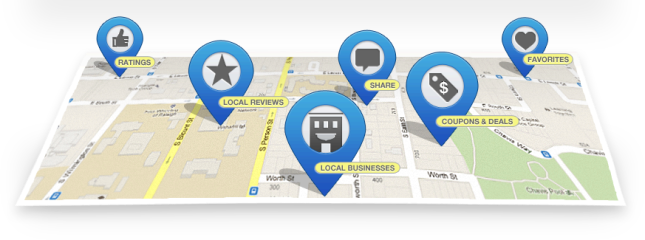Has your Business Claimed an SEO Business Listing (US)?
/ As we’ve discussed in previous articles, it’s absolutely necessary that your small business is listed consistently, clearly, and correctly across the internet. In order for your customers to find your store (or at least obtain your contact info if you work from a private address), they must be able to find your business listing on every search engine. If some of your customers use a search engine other than Google (and trust us, it’s guaranteed some will), a different local listing will appear by your name. So as you can see, you only make sure your listing is correct on Google, you’re going to run into some problems down the road. In this post, we’ll talk about the “3 C’s” of your local listing: Consistency, Clarity, and Correctness.
As we’ve discussed in previous articles, it’s absolutely necessary that your small business is listed consistently, clearly, and correctly across the internet. In order for your customers to find your store (or at least obtain your contact info if you work from a private address), they must be able to find your business listing on every search engine. If some of your customers use a search engine other than Google (and trust us, it’s guaranteed some will), a different local listing will appear by your name. So as you can see, you only make sure your listing is correct on Google, you’re going to run into some problems down the road. In this post, we’ll talk about the “3 C’s” of your local listing: Consistency, Clarity, and Correctness.
Make sure your small business’s SEO business listing is consistent.
Have you changed storefronts? Has your address changed in the last year or so? Did you just lease a new office? If you have, then you’re going to want to make sure that your new address is listed everywhere. You might change the address on one listing, while leaving another listing with the old address. And, unfortunately, if you start confusing the search engines with multiple addresses under the same business, you run the risk of hurting your rankings. This isn’t to say that you can’t have multiple addresses under the same business listing, however: If you run a business with three locations in your local city, you can specify this in your Google Places for Business page and make sure that all of your stores will be found.
So before you post your SEO business listing, make sure that:
- You’ve gone through the proper channels to make sure that your business has an address listed.
- That the current addresses are listed across a number of sites.
- That your address is hidden properly if you need to hide it. Make sure it is hidden across all listings if this is the case!
An SEO Business Listing must be clear and easy to understand.
You’ve probably seen it before: A restaurant has a description on Yelp or Google, trying to entice customers with their eclectic menu and exciting happy hour. But the listing is full of gibberish, words are misspelled, and random nouns are capitalized because… well, who knows why? All of this takes away not only from the professionalism of the company, but from the ease of reading as well. Customers are less likely to visit your establishment if they can’t decipher what you’re trying to tell them. Therefore, you have to ensure that your business listing is clear and concise. Tell your customers that you have a great happy hour, and tell them that you’ve been in business since 1983 and have the best burgers in town—but you don’t need to list your whole menu and ramble on about every little detail of the atmosphere. Let your customers become interested through your description and find out for themselves how great you are when they visit.
Before you let your listing go live, be sure to do the following:
- Check to see if your listing is too long. You might be interested in sharing every detail of your business, but your customers just want pertinent information.
- Make sure you’re clear in your listing: Is everything spelled correctly? Have you clearly stated where your establishment is and what it provides for its customers or clients?
- List all the information you’d want to see when you search for a service. Hours of operation, address, phone number, website, email, and a few sentences about how wonderful you are should all suffice.
Above all, make sure your SEO business listing is correct.
You can have your address listed across all major directories and listings, and you can write the best description in the world for your company—but if you have incorrect some information hidden in there, it’s all for naught. And, even worse, fixing an error of this magnitude is a pain. Before you press “submit” on any of your listing forms, make sure that you list all your most important information correctly. A great tip is to make a list before you start. What do you think is most important for your customers to know? Make sure to include it on you listing. If something can’t actually be listed, make sure that you provide a phone number or another way of contacting you so that customers can still get a hold of you if they have questions.
Before you press submit on your business SEO listing, make sure:
- You’ve made a list of all the information you want to include for your business.
- You’ve spelled everything correctly and included your most recent company info.
- You've filled out complete information and no partial addresses, phone numbers, or business hours!
With these tips, you should be able to create well-rounded, effective, and helpful SEO business listings. Your customers want and need accurate information—and as a small business owner, it’s your job to make sure they get it. Your accurate listings will also make sure that your site (or at least your Google Places for Business page, if you don’t have a website) ranks higher in searches. You can’t go wrong with these strategies!
As always, if you’re simply too busy to manage writing content, listing your sites across the internet, or updating your website/Google Places for Business page, you can ask Internet Local Listings for assistance. We have over 50 years of combined experience in the SEO industry and would be happy to help you with whatever services you need. From social media marketing to building you a custom website, we have the skills and expertise necessary to get your small business site visible on the internet. Call or fill out a contact form today for more information on your services—or feel free to start building your own SEO business listing using these tips! Be sure to subscribe for more updates.
Watch a video about this topic and share with your followers!
[youtube https://www.youtube.com/watch?v=8FaonEFnLkc?list=UUoyXcgTDuuRojwPEcfNKELw]












